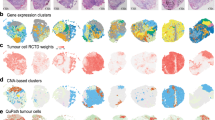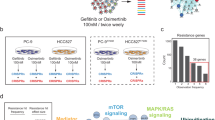Abstract
Oestrogen receptor (ER) expression in breast cancer is regarded as a phenotype that may change during the natural history of the disease or during endocrine therapy. It has been suggested that in up to 70% of tumours that show acquired resistance the mechanism may be changed in ER status from positive to negative. This paper proposes an alternative hypothesis that ER expression in a stable phenotype in breast cancer. The paper reviews the literature on ER expression during the natural history of breast cancer in patients and also presents data on the effect of endocrine therapy on ER expression. If the alternative hypothesis is true it has important implications for treatment from chemoprevention to acquired endocrine resistance in advanced disease. Equally, if the hypothesis is true, attempts to develop laboratory models of endocrine resistance where ER-positive tumours become ER negative need to be re-evaluated.
This is a preview of subscription content, access via your institution
Access options
Subscribe to this journal
Receive 24 print issues and online access
$259.00 per year
only $10.79 per issue
Buy this article
- Purchase on Springer Link
- Instant access to full article PDF
Prices may be subject to local taxes which are calculated during checkout
Similar content being viewed by others
Author information
Authors and Affiliations
Rights and permissions
About this article
Cite this article
Robertson, J. Oestrogen receptor: a stable phenotype in breast cancer. Br J Cancer 73, 5–12 (1996). https://doi.org/10.1038/bjc.1996.2
Issue Date:
DOI: https://doi.org/10.1038/bjc.1996.2
This article is cited by
-
Statin-induced anti-proliferative effects via cyclin D1 and p27 in a window-of-opportunity breast cancer trial
Journal of Translational Medicine (2015)
-
Epidermal growth factor receptor signalling in human breast cancer cells operates parallel to estrogen receptor α signalling and results in tamoxifen insensitive proliferation
BMC Cancer (2014)
-
Comprehensive screen of genetic variation in DNA repair pathway genes and postmenopausal breast cancer risk
Breast Cancer Research and Treatment (2011)
-
Therapeutic CDK4/6 inhibition in breast cancer: key mechanisms of response and failure
Oncogene (2010)
-
Combinatorial biomarker expression in breast cancer
Breast Cancer Research and Treatment (2010)



